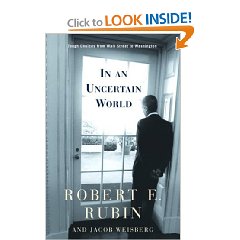Having reviewed, with appreciation, a number of the books that lambaste the extremist Republican carpetbaggers now in the White House (I am myself a moderate Republican who feels betrayed), I can say here that James Carville has done very, very well. He is vastly more elegant and politically focused than Al Franken, Jim Hightower, or Michael Moore, and dramatically easier to read than Paul Krugman, Matthew Crenson & Benjamin Ginsberg, or the cultural creative/new progressive/radical center readings (see Steele's List on Democracy & the Republic).
Lies and the Lying Liars Who Tell Them: A Fair and Balanced Look at the Right
Thieves in High Places: They've Stolen Our Country and It's Time to Take It Back
Dude, Where's My Country?
Peddling Prosperity: Economic Sense and Nonsense in an Age of Diminished Expectations
Downsizing Democracy: How America Sidelined Its Citizens and Privatized Its Public
We the People: An Introduction to American Politics, Sixth Shorter Edition
This is a double-spaced book with big print and small pages, but it does the job. James Carville may be a ragin' Cajun with a smart mouth and a weak bladder (read the book) but he clearly has three things going for him: a brain that is in gear before he talks or writes; good friends strong on both policy and research; and a gift for cutting to the chase. Where I would want to have five of my author-advisors putting together a 1 page summary and 5 page detailed review for each of the key policy areas, Carville manages to do in one book what none of the Democratic candidates–not Dean, not Gephardt–have done: he breaks George W. Bush's back with six strokes of the rod: 1) provide for the common defense (homeland insecurity, screwed up military and foreign policy); 2) provide for the general welfare (deficits and debts matter a lot, tax cuts are a huge lie); 3) secure the blessings of liberty to ourselves and posterity (education, environment and energy, health care–and notice the emphasis in the Constitution on *posterity*, which is the opposite of carpet-bagging); 4) Establish justice (campaign finance reform, corporate governance, myth of tort reform); 5) insure domestic tranquility (why entitlements matter, notes on lying, the religious right, and friends); and finally, 6) form a more perfect union.
This is a quickie book, clearly tapping a multi-million person market for books that contain truth and oppose the impeachable activities of the extremists now looting America through their control of US government policy. It is a simplistic and imperfect book, but sufficient to persuade me that anyone who can muster 1000 brilliant experts covering the 250 critical policy and budget topics that must be mastered to win the general election, must, of necessity, have James Carville as the moderator and facilitator.
The book has several useful graphics, and among them two stand out: one on the changes in the opinion of billions of people around the world from before 9-11 to after three years of Bush in power; the other on the $980 billion–almost one trillion–in uncollected annual tax revenue from corporations that tell their stockholders one thing and the IRS another. I absolutely agree with this author that among our highest priorities must be our restoration of America as good neighbor and global friend to legitimate governments (that cuts out the 44 dictators still operating as looting pals of the Cheney-Bush-Perle regime); and the capture of the lost corporate revenue that could, with other savings, fully fund the most important national security investments: in our people, their health and education, and the restoration of legitimate democracy in America.
Perhaps most interestingly, Carville has avoided the rush to Dean that characterized myself and others who thought Dean would mature quickly and move from Amway parties to structured policy and outreach to all parties including moderate Republicans like myself. Carville cites George McGovern and Nancy Pelosi as special people, and I agree with the first. Pelosi has had her moments, but she has been a doormat in the anchor leg and I will never forgive her for taking impeachment off the table). He also highlights the Center on Budget and Policy Priorities and the Citizens for Tax Justice as meriting special attention, and I only wish that George Soros has earmarked funds for these rather than for organizations that have been too quick to support Howard Dean and abandon a centrist non-partisan policy development position.
Buy this book. Read my other 435 or so reviews. And then, as Carville suggests, stop writing to your Senators and Representatives. Write instead to the editors of your local newspaper and start putting these people (Senators and Representatives) on the spot for betraying the public trust. Download the free NATO Open Source Intelligence Handbook (at oss.net or Google for it) and begin following Tom Atlee's concept for citizen wisdom councils. Take back the power, and don't wait for the Democrats to get their act together, it may be years.
See also:
Vice: Dick Cheney and the Hijacking of the American Presidency
Running on Empty: How the Democratic and Republican Parties Are Bankrupting Our Future and What Americans Can Do About It
Weapons of Mass Deception: The Uses of Propaganda in Bush's War on Iraq
Blood Money: Wasted Billions, Lost Lives, and Corporate Greed in Iraq










